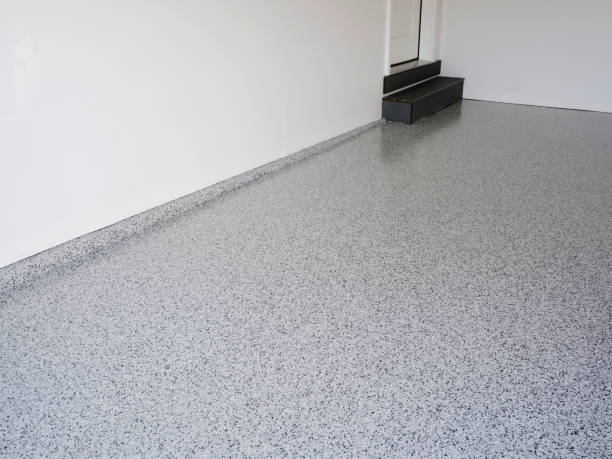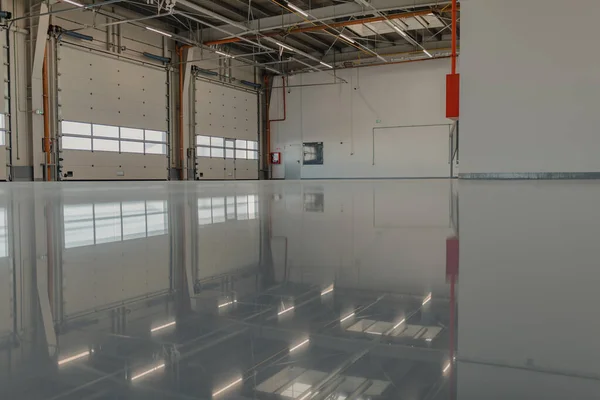What is the Best Epoxy Concrete Coating? Pros and Cons of Each Epoxy Type
April 9th, 2024 | 5 min. read
By Admin

Ever find yourself staring at your garage floor, wondering how it got so beaten up? Or maybe you’re planning that dream basement makeover and hit a roadblock at choosing the right floor coating. You're not alone. Every day, countless folks grapple with the decision of protecting and enhancing their concrete floors. Questions like, "Which epoxy coating is best for my workshop?" and "Will this coating withstand heavy traffic?" flood online forums and discussions.
At Floor Shield, we get it. Deciding on the best epoxy concrete coating can feel like navigating a maze with no clear exit. But here’s the thing: we’ve been there. We’ve asked the same questions, faced the same concerns, and sought the same answers you're looking for now. This isn’t just about selling a product; it’s about sharing solutions we believe in because we’ve seen them work time and again.
In this comprehensive guide, we’re diving deep into the world of epoxy concrete coatings. We’ll explore various types, from the rugged charm of metallic epoxies to the industrial might of Novolac coatings, and dissect the pros and cons of each. You’ll walk away with the knowledge needed to make an informed choice that aligns with your needs, whether it’s for a home project or a commercial space.
Types of Epoxy Concrete Coatings
Now, let’s talk options. Not all heroes wear capes, and not all epoxies are created equal. Here’s a rundown:
- Solid Epoxy Coatings: The Hercules of epoxies. These coatings are robust, offering unparalleled durability. Perfect for garages or industrial spaces that see a lot of action.
- Water-Based Epoxy Coatings: The eco-warrior. Easier to apply and clean up, but not as tough as their solid counterparts. Ideal for light to medium traffic areas.
- Solvent-Based Epoxy Coatings: The middle ground. Stronger than water-based but less intense than 100% solids. Note: They come with a strong odor.
- 100% Solids Epoxy: The heavyweight champion. These coatings are pure epoxy, providing the thickest, most durable layer. Best for areas needing the highest protection.
- Epoxy Terrazzo Coatings: The artist. Not just protection, but beauty. Great for decorative floors that need to withstand foot traffic.
- Self-Leveling Epoxy Coatings: The problem-solver. Ideal for floors with imperfections. They create a smooth, level surface on old, damaged, or uneven floors.
- Novolac Epoxy Coatings: The chemical warrior. Offers supreme resistance to chemicals and high temperatures. Your go-to for industrial areas with extreme conditions.
- Metallic Epoxy Coatings: The showstopper. With a metallic pigment, these coatings offer stunning, unique finishes. Perfect for when you want the floor to be a conversation starter.
Each type has its setting where it shines the brightest. Think about what your floor goes through daily and choose accordingly.
Comparing Epoxy Coating Types: Pros and Cons
Choosing the right epoxy is like picking a movie to watch — what’s your mood? Here’s a cheat sheet to help you decide:
- Water-Based Epoxy Coatings
- Pros: Eco-friendly with low odor; easier application and cleanup than solvent-based options. Ideal for indoor use where ventilation is a concern.
- Cons: Not as durable as 100% solids or solvent-based epoxies. Might require more frequent touch-ups or reapplication, making it less ideal for high-traffic or industrial areas.
- Solvent-Based Epoxy Coatings
- Pros: Offers a stronger bond and more durability than water-based epoxies. Good for areas with moderate to heavy traffic.
- Cons: High VOC content means stronger odors and potential health hazards during application. Requires good ventilation and safety precautions during application.
- 100% Solids Epoxy
- Pros: Provides the thickest, most durable coating. Excellent for high-traffic and industrial areas. Long-lasting with no VOCs.
- Cons: The application can be challenging due to its fast curing time. Professional installation is recommended, adding to the cost.
- Epoxy Terrazzo Coatings
- Pros: Highly decorative, offering a beautiful, seamless surface. Durable and easy to clean, making it great for commercial or public spaces.
- Cons: On the higher end of the price spectrum. Installation is labor-intensive and requires professional expertise.
- Self-Leveling Epoxy Coatings
- Pros: Ideal for correcting uneven floors and filling in cracks or chips. Creates a smooth, seamless surface. Good for industrial, commercial, and residential spaces.
- Cons: May require professional installation for best results. The cost can be higher than other options due to the product and labor involved.
- Novolac Epoxy Coatings
- Pros: Exceptional chemical resistance, making it suitable for labs, industrial kitchens, or manufacturing areas where spills might occur. High heat tolerance.
- Cons: More expensive than other types of epoxies. Requires professional installation due to its specialized application needs.
- Metallic Epoxy Coatings
- Pros: Offers a unique, decorative finish with a variety of colors and patterns. Great for adding a wow factor to commercial or residential spaces.
- Cons: Can be more costly due to the specialized materials and techniques needed. The application process is more art than science, requiring skilled installers.

Choosing the Best Epoxy Concrete Coating for Your Project
Think about your floor’s day. Is it a ballet of light foot traffic, or more of a mosh pit with heavy machinery and chemical spills? Here are some factors to consider:
- Durability Needs: High traffic areas demand tougher coatings.
- Aesthetics: Want a floor that’s a feast for the eyes? Metallic and terrazzo epoxies have got you covered.
- Application Area: Basements, garages, and commercial spaces might have different needs.
- Budget: Costs can vary, so pick something that doesn’t break the bank but still meets your needs.
Application Tips and Best Practices
Applying epoxy coating isn’t a sprint; it’s more of a marathon with prep work. Ensure your floor is clean, dry, and free from oils or grease. Repair any cracks or chips, and if you’re not a DIY enthusiast, consider getting a pro. Trust us, it’s worth it.
Maintenance and Longevity of Epoxy Coatings
Here’s the good news: epoxy floors are low maintenance. A regular sweep and the occasional mop are all it takes to keep them looking dandy. However, they’re not invincible. Avoid dragging heavy equipment across the floor to prevent scratches.
Cost Considerations
The cost of epoxy coatings can range from "Let’s do it!" to "Maybe next year." It depends on the type of epoxy, the size of your space, and whether you hire a professional or take the DIY route. Remember, quality doesn’t always have to mean the most expensive option.
FAQs on Epoxy Concrete Coatings
Can I apply a new epoxy coating over an old one? Yes, but the success of this depends on the condition of the existing coating. It needs to be well-adhered, without peeling or flaking. Always start with a clean, sanded surface to ensure the new layer bonds well.
Is epoxy flooring slippery? Epoxy floors can be slippery, especially when wet. However, you can opt for a slip-resistant additive to be mixed into the topcoat, creating a more traction-friendly surface. This is highly recommended for areas like garages, basements, and commercial kitchens.
Can epoxy coatings be used outdoors? While epoxy coatings are incredibly durable, UV exposure can lead to yellowing and degradation over time. For outdoor applications, it's crucial to choose a UV-resistant topcoat to protect the epoxy layer underneath. Keep in mind that not all epoxy products are suitable for outdoor use, so always check with the manufacturer.
How do I clean and maintain my epoxy floor? Epoxy floors are low maintenance but keeping them clean will extend their life and keep them looking new. Regular sweeping and occasional mopping with mild soap and water are all that's needed. Avoid abrasive cleaners and heavy machinery that can scratch the surface.
Conclusion
Choosing the right epoxy concrete coating might seem daunting, but armed with the right information, you’re more than capable of making the best decision for your space. At Floor Shield, we’re here to help guide you through the process, offering solutions that make sense for your unique situation.
If you’d like a free, no-obligation quote for our 100% polyasaprtic coating, fill out the form below.
